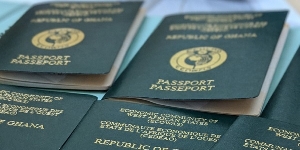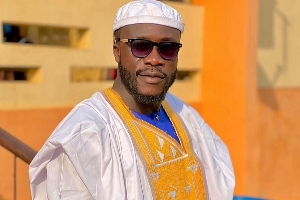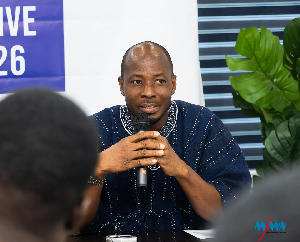RETHINKING OUR NATIONAL LANGUAGE POLICY
It is a fact that none of our local languages is spoken significantly, if at all, outside the borders of this country. It is for this reason that we need to learn a foreign language to be able to interact easily with the rest of the world. In adopting English as our official language, we seem to have made up for the limitations of our local languages.
However, upon careful examination of the way we use English in our educational set- up, it is evident that we do not have a clear conception of how to implement a foreign language in the setting of our diverse and indigenous languages.
Foremost, it is worrying that in our zeal to learn English, we have gone further to make it the only language of instruction for all subjects taught in school. The truth is, there is no commandment that states that English and French ( used by our neighbours ) are the only languages that can be used to effectively teach any subject. To the contrary, it has been demonstrated through numerous research studies that children learn faster and gain a better understanding of fundamental concepts when they are trained in their native languages.
Significantly, our use of English as the only medium of instruction also means that we are denying ourselves the ability to read and write our own languages. We seem to be unaware of the fact that however much we learn English, we will never be considered as native speakers of English. As such we are not in a position to make any authoritative contributions to the development of the language and we will always be relegated to copying or following the examples in usage made by the original speakers.
Languages are dynamic, and they advance only when there is the participation of a largely literate mass of people in its usage. Our maintaining a system that precludes use of local languages for academic purposes and intellectual exchanges, therefore, amounts to encouraging a stunted development of the local languages, as we are literally prohibiting the most essential means necessary for their growth.
Languages are also closely connected with culture, in that they serve foremost as the medium through which the customs of a group, such as art, craft, music, and literature, are expressed and interpreted. By implication, our inborn potential for self-expression in various forms will remain largely untapped and underdeveloped as we limit education in local languages, as well severely restricting our ability to act in ways that lead to an enrichment and augmentation of our cultures.
Overall, the relevance of our continued use of English as the primary medium of instruction, and its effects on the nations human development and productivity have never been investigated. The purpose of this paper is to outline a revolutionary new language policy that redefines our foreign language (English) acquisition and provides for the adoption and elevation of a local language as an official, leading to a complete overhaul of the prevailing poorly thought-out colonial policy.
The most significant undertaking in creating or establishing a culturally responsive national language policy is the adoption of a local language as an Official Language. The official local language or National Language must, however, be implemented within a system that takes into account the importance of all other local languages in cultural development, and that also seeks to equip us to actively engage with the outside world. As a compromise to all interests, I present the following core points as the foundations for a new national language policy.
All Ghanaians will vote a local language to be adopted as a National Language.
Every Ghanaian will learn two (2) local languages. These are one’s own language and a language that belongs to another ethnic group. In other words, every Ghanaian will learn the national language and a second local language that is to be determined by one’s ethnicity. This two language policy will essentially resolve any disputes that may, otherwise, arise from any one ethnic group feeling marginalized. It will also guarantee cross cultural participation and understanding.
Additionally, every Ghanaian will study English.
We will have two (2) Official languages. These are the National Language and English. The predominant official language will be the National Language, and English will be an accepted language especially in commerce.
The National Language will be the primary medium of instruction for all subjects throughout school. English will be learned as a subject.
The national language will be unique to the country and it will serve as our common cultural identity to the rest of the world. All citizens of the country will be considered as native speakers of the national language, and they will together exercise an influence on the language’s development.
In arriving at the choice of a national language, it is absolutely vital that the process is made fully participatory and that all means are sought to ensure that every individual’s opinion is given equal representation. The only means of achieving this is through nationwide elections.
In Ghana, there are over thirty (30) local languages and dialects, all of which can be further developed to adequately deal with all manner of interactions. Having this proliferation of languages, it would be somewhat impractical to put the many languages to a single election. Therefore, there is the need for two nationwide elections.
The elections will be organized in this manner: All dialects or languages spoken in the country belong to a larger language group. These language groups correspond to the various ethnic groups in the country. For example, there are such language groups as: Guan made up of Larteh, Kyerepong, etc. speakers ; Ga-dangme made up of Ga, Ada, and Krobo speakers ; Akan made up of Fante, Asante, Akwapim etc speakers.
Notably, the members of a language or ethnic group usually can understand each others dialect due to the similarity of the words and their construction.
In the first referendum, citizens will choose a language group from amongst all of the country’s language groups. Then, in the second referendum, citizens will select a national language from the language group previously chosen.
On adoption of a national language – bearing in mind that it is essential for all people to learn in their native languages especially during the very formative years – a format of education that makes it possible for all to learn their indigenous languages in addition to the national language will have to be devised. To meet this requirement, a special scheme will have to be designed for the following three groups of speakers or their communities. Indigenous speakers of the chosen national language Indigenous speakers of languages or dialects similar to the national language. (That is, those belonging in the same language group as the national language.) Indigenous speakers of languages different from the national language or its group.
In order to fulfill every individual’s indigenous language requirements with regards to the national language, every Ghanaian will compulsorily have to learn two local languages. These are the national language and a second local language. By mandating that all Ghanaians learn a second language that is outside their ethnic group, a system will be created that encourages inter-cultural relations and understanding. To realize this second language stipulation, the following policy is to be adopted for the three groups of speakers.
Indigenous speakers of the national language will learn the national language and a second local language that is outside their ethnic group.
Indigenous speakers of languages similar to the national language will learn the national language and a second language that is outside their ethnic group. (This group of people will use their particular dialects up to Primary3, and then switch to the national language from Primary4.)
Indigenous speakers of languages outside the national language or its group will learn the national language and their indigenous languages as second languages.
The actual implementation of the two(2) language policy must be done on community basis, to avoid the chaos that would result from doing it on individual basis. Each school located in communities where their original language is the national language, or is similar to the national language, will be mandated to offer only one second language. As an illustration, imagine that Fante, a member of the Akan group of languages, is chosen as the National Language. Then, the following language policy will be applied:
All Fante communities will learn Fante, and a non-Akan language as a second language. Each school in these communities will offer only one second language.
All other Akan communities, such as Asante and Akwapim, will learn Fante and a second language that is non-Akan. They will, however, be using their particular dialects up to Primary 3, and then switch to Fante in Primary 4. Each school in these communities will likewise offer only one second language.
All non Akan communities will learn Fante and their indigenous languages.
For a cosmopolitan community such as Accra, where there is a mass representation of all the ethnic groups, the only two (2) local languages to be used are the national language and the language of the original inhabitants. So in Accra only Fante and Ga will be learned.
Implementation of the 3 compulsory languages- that is, the national language, a second local language and English- will be based on the following arrangements at the various levels of education.
Stage 1: [Kindergarten to Primary 3] The national language and the second local languages will be the only two languages to be used at this stage. The national language and the second local languages will be used simultaneously for instruction in all subjects. Everything taught using one language, such as rhymes, poems, art, or math, will be translated and taught in the other. Through this, all children will attain the same level of proficiency in the national language whilst at the same time learning their indigenous languages. English will not be introduced at this stage. When the children have grasped the basics of their own languages they will learn English faster.
Stage 2: [Primary 4 to Secondary School] The national language will be the only language of instruction for all subjects during this period. English will be introduced at this stage. However, English and the second local languages will be treated purely as subjects with a focus on reading, writing, speaking, and literature. The second local languages could be discontinued at the end of Junior Secondary.
Stage 3: [Tertiary Education] At the tertiary stage where Diploma, HND, Bachelor, Master and Doctoral courses are offered, the languages of instruction will be the National Language and English. English will be an acceptable language of instruction considering the international nature of certain programmes and the incidence of visiting lecturers. The practice of using different languages of instruction in a single programme is commonplace in several European universities.
An illustration of how the 3 compulsory languages will be used at the various levels of education, as enumerated above, is shown below:
The final implementation of a National Language will not be an easy task. Considering the present state of affairs, it will involve tremendous amounts of work and perseverance on our part. It will, for instance, require that the vocabulary and structure of the local language is rapidly adapted to tackle advanced studies in all fields including Mathematics, Biology, Computer Science, Chemistry, Physics, Economics, Accounting, Art, Law, Literature, Music, Astronomy, and Archeology. Also, the numerous volumes of invaluable foreign language material, and all of the nations documents and statutes will have to be translated.
With a unity of purpose, adequate facilitation and mass participation, these grand undertakings can all be accomplished, with our being able to use our local language officially in our lifetime. It is time we chart a new path for our national self-determination by taking a critical look at the impact of all policies on our core interests.















